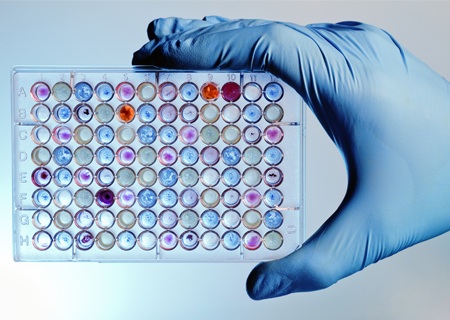Daily Business Report-Jan. 16, 2015
LCMS Solutions of La Jolla, one of the San Diego companies receiving state tax credits, utilizes state-of-the-art Liquid Chromatography Mass Spectrometry equipment for urine drug testing for health care providers.
San Diego Scores Big in Latest Round
Of State Tax Credits Awarded to Businesses
San Diego area businesses will receive nearly $2.8 million in state tax credits for creating new jobs through a program enacted by the Legislature in 2013.
The California Competes Tax Credit (CCTC) Committeeon Thursday announced a total of eight local companies that will benefit from this new program, including four small businesses.
The larger companies are:
• Fox Factory Inc. of El Cajon, which will create 267 jobs by investing $10.8 million and will receive a $1.7 million tax credit.
• iBoss Inc. of San Diego, which will create 109 jobs by investing $12.7 million and will receive a $320,000 tax credit.
• Underground Elephant Inc. of San Diego, which will create 16 jobs by investing $1.6 million and will receive a $165,000 tax credit.
• Quality Controlled Manufacturing of Santee, which will create 22 jobs by investing $2.7 million and will receive a $130,000 tax credit.
Small businesses in the region that were also awarded:
• Fluoresprobe Sciences LLC of San Diego, which will create 14 jobs by investing $2.05 million and will receive a $220,000 tax credit.
• LCMS Solutions Inc. of San Diego, which will create 24 jobs by investing $415,000 and will receive a $220,000 tax credit.
• Modern Times LLC of San Diego, which will create 65 jobs by investing $24.9 million and will receive a $60,000 tax credit.
• Pantek Partners LLC of San Diego, which will create 67 jobs by investing $100,000 and will receive a $30,000 tax credit.
These businesses are among 56 throughout the state that are approved to receive tax credits for expanding and creating jobs in California. Altogether, $30 million in credits will be awarded, which is projected to create nearly 4,900 new California jobs and 584 in San Diego.
The California Competes program took the place of the California Enterprise Zone program, which was scuttled by Gov. Jerry Brown.
Assembly Speaker Toni Atkins will be hosting a California Competes workshop in San Diego along with Go-Biz on Jan. 23 to educate local businesses about the program.

San Diego Awarded the 2016 All-Star Game
Baseball Commissioner Bud Selig has awarded the 2016 All-Star Game to the San Diego Padres.
The Padres will follow the Cincinnati Reds, who will stage Baseball’s 86th Midsummer Classic on Tuesday, July 14, 2015 at Great American Ball Park.
The 2016 All-Star Game will mark the third time ever that the Padres have hosted the event and the first for Petco Park, which opened in 2004. San Diego’s Jack Murphy Stadium was the site of the 1978 and 1992 Midsummer Classics.
Major League Baseball has received a number of bids from National League clubs whose ballparks have never hosted the All-Star Game. Due to the quality of these bids, it was determined that the 2016 site would be awarded to the club that made the most competitive bid, regardless of league affiliation.
The last time that the same league hosted the All-Star Game in two consecutive years was in 2006-2007, when Pittsburgh and San Francisco of the National League hosted the event, respectively. Since 2010, the designated hitter has been in effect for both sides, regardless of venue.
“San Diego is one of America’s most beautiful cities, and showcasing Petco Park in its thriving downtown will be a remarkable opportunity for the Padres franchise and all of Major League Baseball,” said Selig.
“Padres fans have been awaiting the return of the Midsummer Classic for more than two decades, and we are thrilled with today’s news,” said Padres Executive Chairman Ron Fowler.
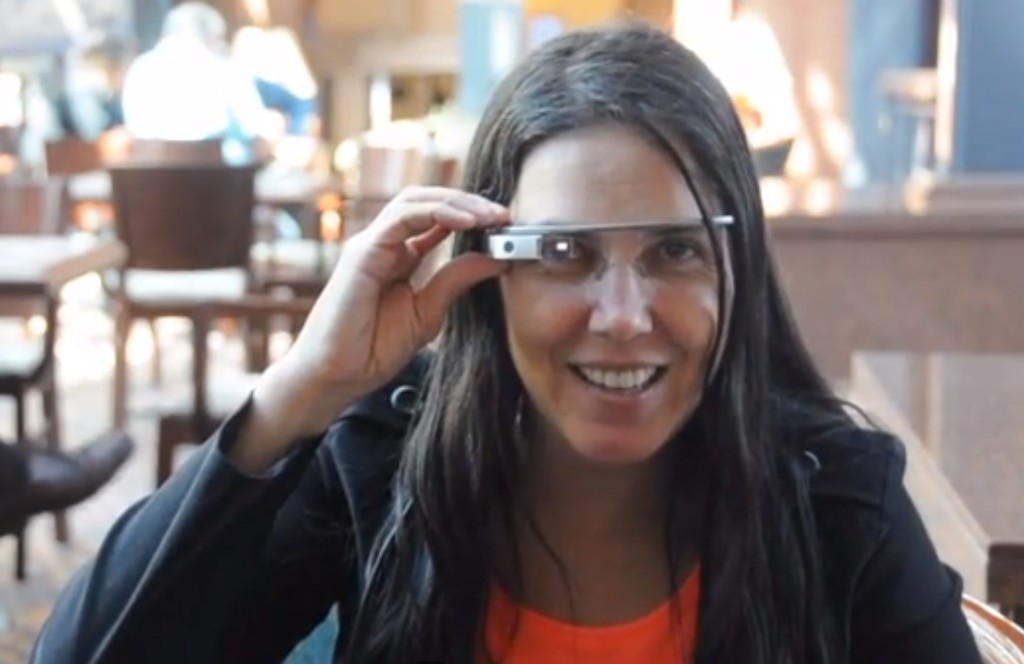
Temecula Woman Not Guilty
In Google Glass Traffic Ticket
A San Diego traffic court commissioner dismissed the first traffic ticket issued to a person for using Google Glass while driving, but the ruling isn’t an invitation for drivers to use the device behind the wheel.
The commissioner found there was not enough evidence presented to prove the device was activated at the time of the traffic stop.
Cecilia Abadie, of Temecula, was ticketed for speeding while driving Interstate 15 near Aero Drive on Oct. 29.
The California Highway Patrol officer who issued the ticket testified Wednesday that Abadie passed him doing 85 mph in her silver Toyota Prius.
“When I contacted her she was wearing a device on her face known as Google Glass,” CHP Officer Keith Odle testified. “It was covering half of her right eye.“
Officer Odle and a representative from the CHP Academy in Sacramento testified on what they considered the safety concerns of the device — including the ability for the user to receive in-frame video chats — but San Diego Commissioner John Blair ruled they did not present enough evidence that Abadie was actually using the device when she was stopped.
Abadie maintains she was simply wearing the device, which she does all the time, apparently. She said that the Glass activated when she looked up at the officer as he approached her vehicle.
Blair found Abadie not guilty, but he added that he felt the new device does fall under California Vehicle Code 27602.
That particular section, according to CHP, states that it’s against the law in California for a motorist to drive a car if a television monitor, screen or similar video monitors are turned on and visible to the driver.
“Based on the plain language of the statute, the court finds that … Google Glass falls within the purview and intent of the legislature,” Commission Blair ruled.
Water Use Plummets 29 Percent
Water use in the San Diego region plummeted by 29 percent in December 2014 compared to the same month a year earlier, evidence that many residents, businesses and farmers turned off their irrigation systems for long periods following a series of rainstorms. The savings totaled 10,636 acre-feet, enough to serve more than 21,000 typical four-person households for a year.
The dramatic decrease in water use was achieved even though December was the 14th consecutive month of above-normal temperatures in San Diego. Last year was the hottest year on record in San Diego County and California (dating back to 1895), and 2012-2014 was the driest three-year period on record for the state.
December’s decrease in potable water use is based on figures reported to the Water Authority by its 24 member agencies. Water agencies across the county have adopted mandatory water-use restrictions and they are preparing for the potential of a fourth consecutive dry year.
Clock Ticking on City Charter Review Committee
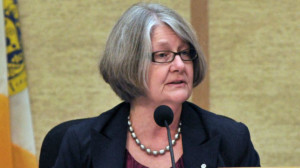
A City Council committee for revising the San Diego City Charter has one year to prepare ballot measures for the June 2016 election, council President Sherri Lightner said Thursday. At the first meeting of the Charter Review Committee, Lightner said the goal is to make the City Charter work better for San Diego residents and city employees.
Numerous flaws in the city’s governing document were discovered in 2013 as officials and the public searched for ways to remove then-scandal plagued Mayor Bob Filner from office.
“We often discover problems with the charter when we’re in the middle of some sort of crisis or major issue,” Lightner said. “We need to address these types of issues now, when we have time to take to actually have a thoughtful, thorough discussion.”
She said she asked for feedback from city managers about problems they see in the City Charter. Beginning Feb. 5, the committee will begin tackling specific problems, Lightner said.
The charter was adopted in 1931, making it the fourth-oldest among California’s 15 largest cities, according to the San Diego’s Independent Budget Analyst. It has been amended 245 times, the most in the state.
The result, according to City Attorney Jan Goldsmith, is a document that is a “mess,” because it is “ambiguous, outdated and incomplete.”
— City News Service
Study: Century-Old Drug May be Key to Autism Cure

Researchers at the UC San Diego School of Medicine said Thursday that a century-old drug corrects genetic autism symptoms in laboratory mice, which might suggest a pathway for treatment in humans.
The drug is suramin, which has been used for decades to treat trypanosomiasis, a parasitic disease found in sub-Saharan Africa that’s also known as Sleeping Disease. The illness comes in two stages, the first of which doesn’t show symptons, but the second — which strikes years later — impacts the central nervous system and upsets the sleep cycle.
UCSD scientists previously found that suramin corrected environmentally caused autism symptoms in mice, but this is the first time the same result has been seen in genetic autism.
“Correcting abnormalities in a mouse is a long way from a cure in humans, but our study adds momentum to discoveries at the crossroads of genetics, metabolism, innate immunity, and the environment for several childhood chronic disorders,” said Dr. Robert Naviaux, a UCSD professor of medicine. “These crossroads represent new leads in our efforts to understand the origins of autism and to develop treatments for children and adults with ASD.”
— City News Service
First UC San Diego MacArthur
Foundation Chairs Holders Named
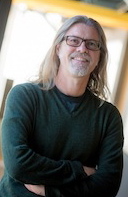
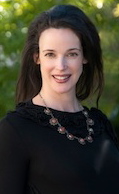
For the first time, two UC San Diego faculty have been appointed to hold University of California endowed faculty chairs supported by the John. D. and Catherine T. MacArthur Foundation.
Chancellor Pradeep K. Khosla has appointed Sheldon Brown from the Division of Arts and Humanities holder of the John D. and Catherine T. MacArthur Foundation Chair in Digital Media and Learning, and Emilie Hafner-Burton from the School of International Relations and Pacific Studies holder of the John D. and Catherine T. MacArthur Foundation Chair in International Justice and Human Rights.
Brown and Hafner-Burton will each be supported by a $1 million endowment for a five-year term.
Brown, a professor of visual arts at UC San Diego, is director of the campus’s Arthur C. Clarke Center for Human Imagination and UC San Diego site director for the Center for Hybrid Multicore Productivity Research sponsored by the National Science Foundation.
Emile M. Hafner-Burton is an expert on international law and regulation as it relates to the protection of human rights. She authored “Making Human Rights a Reality,” which examines why it has been so difficult for international laws to have an impact in parts of the world where human rights are most at risk.
Dan Broderick Installed as NAIOP President
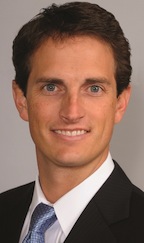
NAIOP, the Commercial Real Estate Development Association, has installed Dan Broderick, managing principal at DZT, as its 2015 president.
Broderick and NAIOP’s board will focus on networking and educational opportunities; Developing Leaders program; the popular university challenge; philanthropic initiatives; and influencing legislative affairs that affect the commercial real estate industry.
In addition to Broderick, the other elected board members are Nelson Ackerly of Irvine Company Office Properties as president-elect; Gary Katz of NetREIT as treasurer; and Tom Turner of Procopio Cory Hargreaves & Savitch as immediate-past president.
UC San Diego School of Medicine Named
One of Nation’s Top Residency Programs
UC San Diego School of Medicine was named one of the nation’s top residency training programs in 10 specialties by Doximity. The Doximity report included more than 50,000 peer nominations from board-certified U.S. physicians and evaluated 3,691 residency training programs across 20 specialties.
UC San Diego School of Medicine placed in the top 10 for residency training in the West in the following specialties: internal medicine, anesthesiology, dermatology, obstetrics & gynecology, orthopaedic surgery, otolaryngology, pediatrics, psychiatry, radiology (diagnostic) and surgery. More than 900 post-graduate trainees, including interns, residents and fellows, train at UC San Diego each year.
Neuropore and UCB Collaborate
On Treatment for Parkinson’s Disease
Neuropore Therapies Inc. of San Diego and UCB, a biopharmaceutical company based in Brussels, Belgium, announced that they have entered into a world-wide collaboration and agreement to develop and commercialize therapeutic products aiming at slowing the progression of Parkinson’s disease and related disorders.
This includes NPT200-11, Neuropore’s novel small molecule that targets pathogenic alpha-synuclein, which is currently in preclinical development and is expected to enter clinical Phase 1 in 2015.
“With Neuropore’s NPT200-11, we have the opportunity to develop a disease modifying treatment option for patients with Parkinson’s disease and other synucleinopathies,” said Ismail Kola, president of UCB New Medicines.
Under the terms of the agreement, UCB will receive the worldwide exclusive license to develop and commercialize NPT200-11. UCB and Neuropore will work together to complete non-clinical studies, and a first Phase 1 study to be initiated in 2015.
Personnel Moves
Andrea Kaplan Russell Named Kirby Noonan Partner
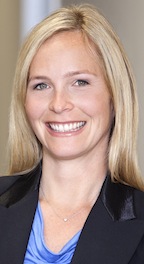
San Diego law firm Kirby Noonan Lance & Hoge has named Andrea Kaplan Russell as partner. Previously an associate at the firm, Russell has represented defendants and plaintiffs in practice areas that include civil, tort and business litigation, professional and product liability.
While in law school, Russell received the Academic Achievement Award in Legal Writing, Research and Contracts, and served as a judicial extern to the Honorable Louisa S. Porter of the U.S. District Court, Southern District of California. She also interned for the U.S. Attorney’s Office, Civil Division.
Russell is chair of the Civil Litigation Section of the San Diego County Bar Association. She received her bachelor’s degree from UC Berkeley and juris doctorate from the University of San Diego.

